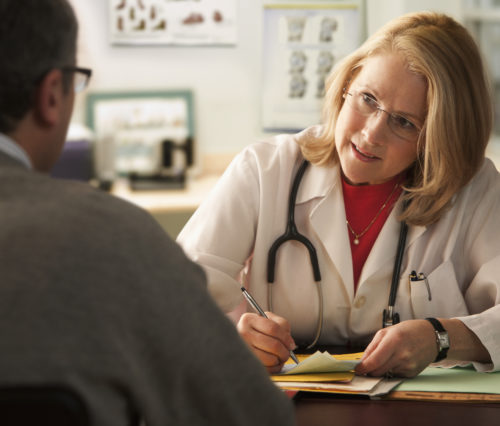March Is National Kidney Month

Ask your doctor if you should be tested.
Your kidneys aren’t very large; each is about the size of your fist. But they do a big job. Every 30 minutes, they filter all the blood in your body. According to the National Institutes of Health, our kidneys filter enough fluid every day to fill the hot water heater of a house!
Our kidneys are made up of millions of tiny filters called nephrons. If the nephrons are damaged, we can develop chronic kidney disease (CKD), making our kidneys less and less able to filter our blood and eliminate extra fluid, minerals and waste from our body. If not treated, CKD can lead to kidney failure, and a person will need dialysis (a treatment that filters the blood) or a kidney transplant.
The earlier treatment begins, the better a person’s outcome. But in the earliest stages of CKD, there usually are no symptoms that a person would notice. The Centers for Disease Control and Prevention (CDC) says that 10 percent of adults in the U.S. have CKD, but most don’t know they do. So it’s vital to know the risk factors:
- High blood pressure
- Diabetes
- Heart disease
- High cholesterol
- A family history of CKD
- Age 50 or older
Ask your doctor if you should be tested. In most cases, this consists of simple blood and urine tests.
Few cases of kidney disease can be reversed, but the progression of the disease can be slowed and managed by controlling diabetes and high blood pressure. If a person is diagnosed with CKD, regular medical supervision with a healthcare team that includes a nephrologist (kidney doctor) is important. The doctor may recommend medications, and it’s very important to take them as prescribed. The CDC also says that lifestyle changes can slow the progression of the disease. These include:
- Keep your blood pressure at the target your doctor recommends.
- If you have diabetes, stay in your target blood sugar range as much as possible.
- Get more exercise; physical activity helps control blood pressure and blood sugar levels.
- Lose weight if you’re overweight.
- If you smoke, quit.
- Meet with a dietitian to create and regularly update a kidney-healthy eating plan.
During National Kidney Month and year-round, the CDC reminds us, “Take care of your hard-working kidneys and they’ll help take care of you.”
Source: IlluminAge Communication Partners with information from the Centers for Disease Control and Prevention and the National Institutes of Health.
The information in this article is not intended to replace the advice of your healthcare provider. Talk to your doctor about your risk of kidney disease and whether you should be tested.


